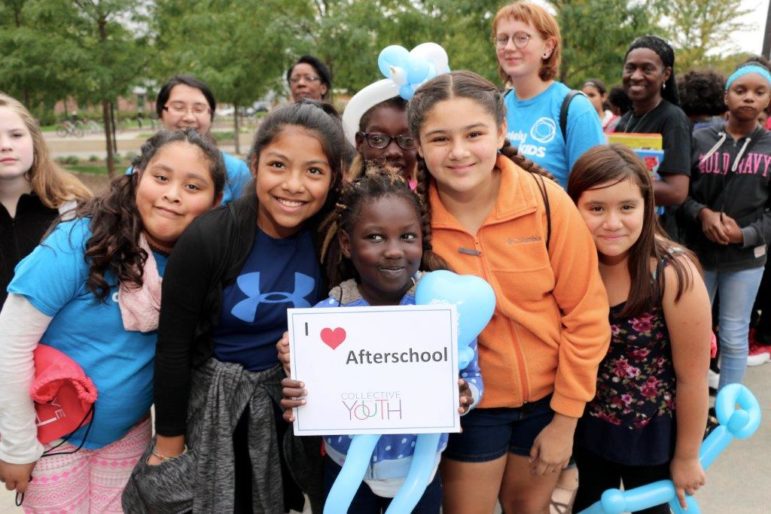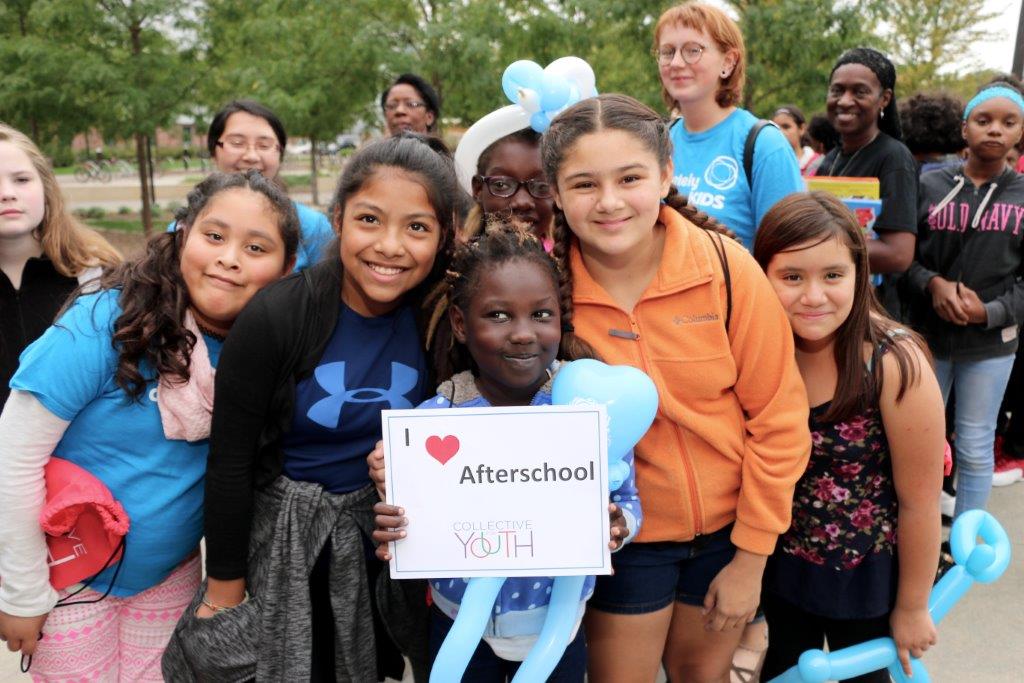
Collective for Youth in Omaha, Nebraska
WASHINGTON — Candidate Donald Trump offered little insight into his prospective policies surrounding youth and families, and President-Elect Trump has not provided any more clarity. Many youth advocacy groups say their approach to the beginning of the new administration is a sort of cautious optimism.
Their top priorities for the first 100 days are strengthening tax credits for families, increasing access to affordable child care, making more housing more affordable, investing in mentoring and after-school programs, and ensuring that youth employment is included in plans to increase jobs nationwide.
However, trying to guess which issues will take priority — and secure the necessary funding — is still mere conjecture.

Collective for Youth in Omaha, Nebraska
Erik Peterson, the vice president of public policy at Afterschool Alliance, is not leaping to any conclusions about what new Cabinet appointees will or won’t do early on. “For the first 100 days and even past them, we’re most looking forward to meeting the new political appointees who will serve in all the different federal agencies that touch in one way or another the supports for local after-school programs, talking to them, getting their ideas, hearing what’s on their agenda,” Peterson said. “It’s easy to see what’s been reported in the media, but it’s a different story when folks actually get there and have their own ideas and priorities of what they want to work on.”
A coalition of organizations devoted to eliminating child poverty is hoping those priorities will include policies that support financial security for at-risk families.
“We are asking President-elect Trump’s policy advisers to consider solutions that truly work for kids, families and communities,” said Bruce Lesley, president of First Focus Campaign for Children. “If we want to make America great, we must tackle child poverty and invest in our nation’s future — our children.”
However, Abbie Evans, the senior director of government relations at MENTOR, cautions allies to look beyond Trump’s plans, and be cognizant of what members of Congress are doing, or not, for youth in their constituency.
“In terms of the first 100 days, you can’t think of the administration’s first 100 days without thinking about Congress’ first 100 days. We want to make sure that Congress is responding in a way that is consistent with supporting the needs of the young people in their district,” Evans said. “It’s easy to talk in the 50,000-foot perspective in D.C., but members of Congress are responsible for their states and their individual districts.”

Tempe and Kyrene Elementary School Districts in Tempe, Arizona
While each organization has its own focus, Evans said they’re all eying the same thing: how programs affecting children and families are funded. “The whole nondefense discretionary pot of funds is really threatened. I don’t think that anyone can argue with a straight face that it’s not. Those are the programs that are the bread and butter for young people for the most part, so just the fact that that large amount of money is really threatened in a way that is really inconsistent with nondefense discretionary programs is really troubling.”
Marsha Levick, deputy director and chief counsel at the Juvenile Law Center in Philadelphia, is particularly concerned about the Every Student Succeeds Act. “ESSA is a terrific piece of legislation that can be ignored, it can be implemented weakly, it could be potentially lacking in sufficient federal appropriates to implement the bill appropriately,” she said.
However troubled or optimistic the advocates may be, they all agree on one thing.
“We want to be as involved in the new administration as they allow us to be,” Evans said.






























